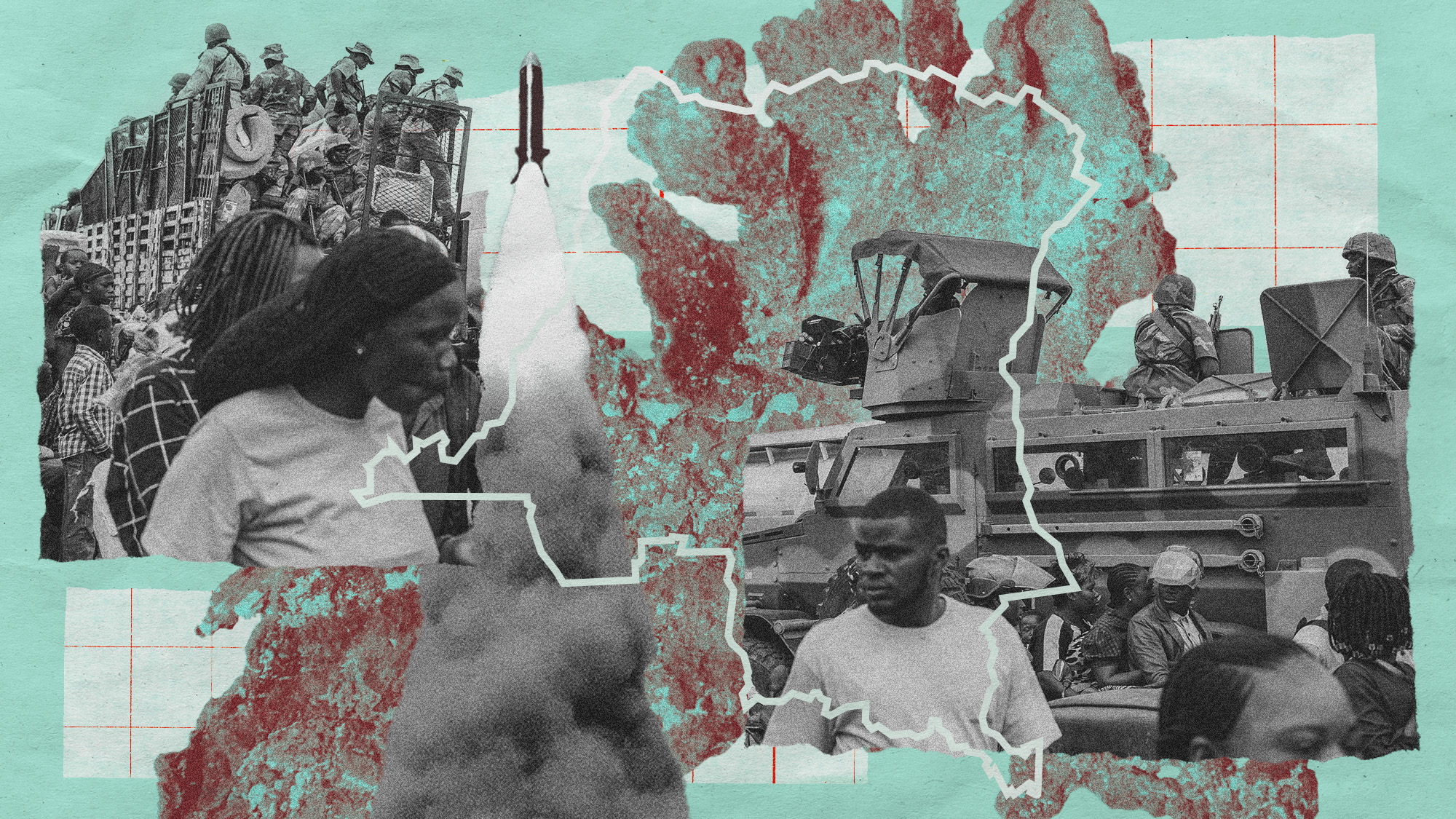Growing turmoil in resource-rich Democratic Republic of Congo
South African troops help army battle rebel groups in the world's leading cobalt producing country

A free daily email with the biggest news stories of the day – and the best features from TheWeek.com
You are now subscribed
Your newsletter sign-up was successful
South Africa has sent nearly 3,000 troops to help tackle armed groups in war-torn Democratic Republic of Congo, one of the world's most volatile – and resource-rich –regions.
The new soldiers "form the backbone" of the wider Southern African Development Community (SADC) force helping the DRC's army fight armed groups, according to BBC News. The 16-member state SADC approved the mission last year to "address instability and deteriorating security in its restive eastern region", said Reuters. Decades of bloody conflict between "myriad armed groups" has killed hundreds of thousands of people, and displaced more than 7 million.
In recent days, the most prominent armed group, the M23, has been advancing on the regional capital of Goma, forcing nearly 50,000 people to flee their homes.
The Week
Escape your echo chamber. Get the facts behind the news, plus analysis from multiple perspectives.

Sign up for The Week's Free Newsletters
From our morning news briefing to a weekly Good News Newsletter, get the best of The Week delivered directly to your inbox.
From our morning news briefing to a weekly Good News Newsletter, get the best of The Week delivered directly to your inbox.
But the deployment also "underscores the DRC's growing importance for the global economy", said Semafor. In 2022, it produced almost three-quarters of the world's cobalt and nearly 10% of its copper, both of which are "essential in the green-energy transition".
'Risk of regional explosion'
The DRC has been fighting a host of rebel groups since the regional wars erupted in the 1990s, when neighbouring Rwanda "pursued genocidaires responsible for the 1994 mass killings of Tutsis into Congolese territory", said Al Jazeera. Most of the groups seek control over the cobalt and copper resources, both "crucial for manufacturing electronics".
But the "fearsome" M23 operates in the hills close to the Rwandan border, and says it fights in defence of ethnic Congolese Tutsis, who "face tribal discrimination in the DRC". The group was "pushed out" in 2013 but "resurfaced again in 2021, possibly because of renewed Rwandan support".
The UN, Western governments and DRC officials have accused neighbouring Rwanda of funding the group, which seized swathes of territory in 2022, in order to control the region's minerals. Kigali has consistently denied the accusations, but the issue has caused "a serious diplomatic rift in the region", said Al Jazeera.
A free daily email with the biggest news stories of the day – and the best features from TheWeek.com
Recently, clashes between rebels, the army and self-defence groups have escalated, "forcing entire communities to flee" to the outskirts of Goma, near the Rwandan border, said Reuters. The M23 described its actions as "defensive manoeuvres" in a statement on Wednesday.
The situation "raises the risk of a regional explosion", said Jean-Pierre Lacroix, the UN under-secretary general for peace operations.
'A doubling of global cobalt demand by 2030'
A UN peacekeeping force is due to leave the DRC this year, after 25 years in the country. An East African regional force left last December after the Congolese government "deemed it ineffective", said Africa News.
"Neither has been able to stabilise a region that's rich in tin, tantalum, gold and other metals," said Bloomberg.
The SADC is designed to replace both. Since apartheid, South Africa has played "a central role as a mediator and peacemaker" on the continent, said Thomas Mandrup, expert in African security governance, on The Conversation. "The DRC has been at the centre of these efforts."
But South Africa's defence force is "overstretched and underfunded". The reserve force is "ageing", with an average age of 46, and "only at half its supposed strength".
It has only one operational aircraft and few helicopters available, while the DRC has "very limited functional roads", making it difficult to move around, especially in the rainy season.
The AFP news agency quoted a UN document claiming that the Rwandan army is using weapons such as surface-to-air missiles to support the M23.
Meanwhile, the rebel groups have operated in the area for many years, know the terrain and are "integrated with the local population", said Mandrup. South Africa's forces therefore seem unlikely to be the arbiter of lasting peace in the DRC.
Meanwhile, the "exponential growth" of the electronic vehicle sector is expected to drive "a doubling of global cobalt demand by 2030", according to Mining.com.
But "plummeting cobalt prices", which fell almost 30% last year, "have severely impacted the DRC". Ironically, efforts to reduce the use of cobalt in batteries has been partly driven by concerns over "artisanal cobalt mining in the DRC and related child labour and human rights abuses".
Neither the regional power struggle, nor the battle for control of the DRC's wealth of resources, bode well for the nation's civilians, who have so far borne the brunt of the violence.
Harriet Marsden is a senior staff writer and podcast panellist for The Week, covering world news and writing the weekly Global Digest newsletter. Before joining the site in 2023, she was a freelance journalist for seven years, working for The Guardian, The Times and The Independent among others, and regularly appearing on radio shows. In 2021, she was awarded the “journalist-at-large” fellowship by the Local Trust charity, and spent a year travelling independently to some of England’s most deprived areas to write about community activism. She has a master’s in international journalism from City University, and has also worked in Bolivia, Colombia and Spain.